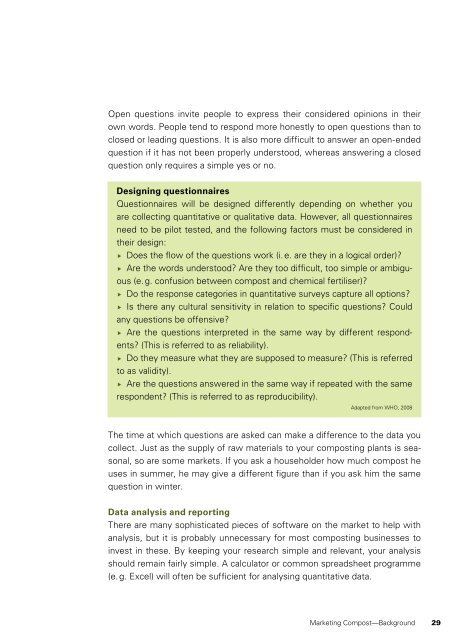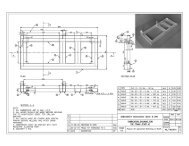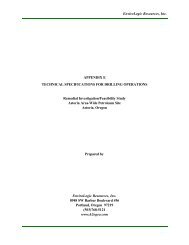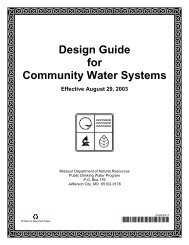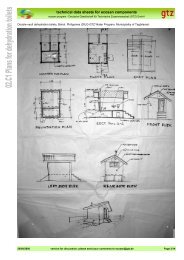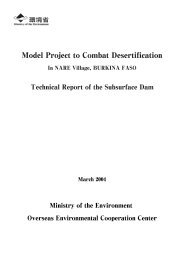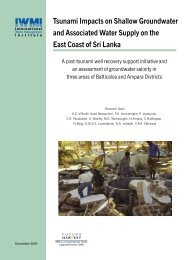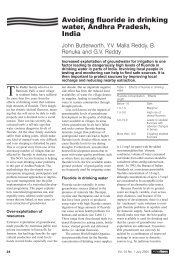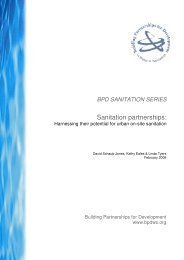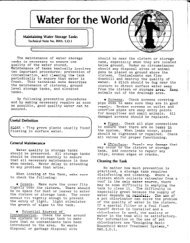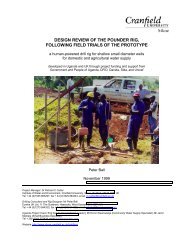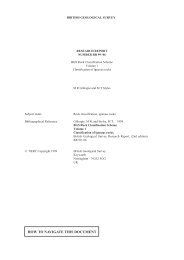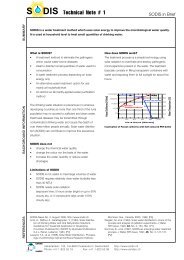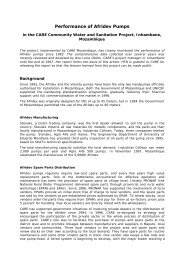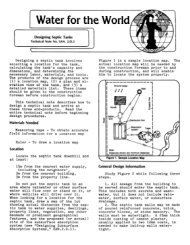Marketing Compost (EAWAG) - The Water, Sanitation and Hygiene
Marketing Compost (EAWAG) - The Water, Sanitation and Hygiene
Marketing Compost (EAWAG) - The Water, Sanitation and Hygiene
Create successful ePaper yourself
Turn your PDF publications into a flip-book with our unique Google optimized e-Paper software.
Open questions invite people to express their considered opinions in their<br />
own words. People tend to respond more honestly to open questions than to<br />
closed or leading questions. It is also more difficult to answer an open-ended<br />
question if it has not been properly understood, whereas answering a closed<br />
question only requires a simple yes or no.<br />
Designing questionnaires<br />
Questionnaires will be designed differently depending on whether you<br />
are collecting quantitative or qualitative data. However, all questionnaires<br />
need to be pilot tested, <strong>and</strong> the following factors must be considered in<br />
their design:<br />
Does the flow of the questions work (i. e. are they in a logical order)<br />
Are the words understood Are they too difficult, too simple or ambiguous<br />
(e. g. confusion between compost <strong>and</strong> chemical fertiliser)<br />
Do the response categories in quantitative surveys capture all options<br />
Is there any cultural sensitivity in relation to specific questions Could<br />
any questions be offensive<br />
Are the questions interpreted in the same way by different respondents<br />
(This is referred to as reliability).<br />
Do they measure what they are supposed to measure (This is referred<br />
to as validity).<br />
Are the questions answered in the same way if repeated with the same<br />
respondent (This is referred to as reproducibility).<br />
Adapted from WHO, 2008<br />
<strong>The</strong> time at which questions are asked can make a difference to the data you<br />
collect. Just as the supply of raw materials to your composting plants is seasonal,<br />
so are some markets. If you ask a householder how much compost he<br />
uses in summer, he may give a different figure than if you ask him the same<br />
question in winter.<br />
Data analysis <strong>and</strong> reporting<br />
<strong>The</strong>re are many sophisticated pieces of software on the market to help with<br />
analysis, but it is probably unnecessary for most composting businesses to<br />
invest in these. By keeping your research simple <strong>and</strong> relevant, your analysis<br />
should remain fairly simple. A calculator or common spreadsheet programme<br />
(e. g. Excel) will often be sufficient for analysing quantitative data.<br />
<strong>Marketing</strong> <strong>Compost</strong>—Background 29


